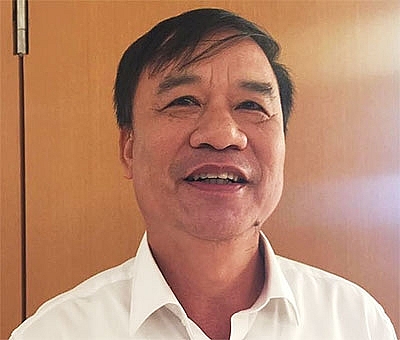99 years' land-use term proposed to charm investors to SAEZs
 |
| Tran Quang Chieu |
Land use is a sensitive issue, particularly when it comes to foreign investors. Why did you propose extending investors’ land use duration at SAEZs to 99 years?
In my view, based on the investment projects’ scale and investors’ proposals, the SAEZ chairman shall be allowed to expand the land use duration of production and business projects at SAEZs to a maximum of 70 years. In special cases, the duration of land use might be extended to a maximum of 99 years, subject to the prime minister’s approval.
These regulations aim to set SAEZs apart from economic zones (EZs), industrial parks, and export processing zones in the country, as well as other SAEZs regionally and internationally.
At present, domestic and foreign business at EZs enjoy 70 years of land use. If we do not expand this at SAEZs in certain cases, the land law system at SAEZs will not be as attractive for investors as some existing EZs.
In addition, several SAEZs in Thailand, Malaysia, the Cayman Islands, and Dubai, just to name a few, allow investors 99 years of land use. Without tempting incentives, it would be hard for our latecomer SAEZs to court potential investors.
Some argued that allowing foreign invested businesses to use land for 99 years would mean “sacrificing the country’s territory for economic growth.” What do you think of this?
Not every project in SAEZs is eligible to use the land for 99 years as the policy only applies to projects in specific priority investment fields, such as innovative startups, research and development centres, healthcare, education, and training facilities.
It is necessary to note that the 99 years would be the maximum. For instance, when Van Don, Phu Quoc, and Bac Van Phong are officially established in 2020, businesses who fully satisfy the requirements and invest in priority areas will be allowed to use the land for up to 99 years, until 2119—and the emphasis is on the latter date.
In 2030, if businesses wanted to invest in SAEZs and satisfied all conditions, they could use the land for at most 89 years only (until 2119). Similarly, in 2050, the land use duration to qualified investors would be 69 years only.
I believe this regulation will not affect the land law and policies, but will help SAEZs to attract potential investors.
After 2119, issues such as extending the land lease, setting the priority fields and areas or determining the incentives will depend on the social and economic conditions and the development level of the economy at the time.
What fields and areas should be prioritised and what incentives will be offered, in your view?
The SAEZ Compiling Board is revising the list of priority investment fields at each SAEZ and corresponding land and tax incentives for each priority field.
In my view, tax reductions and exemptions in any particular area should not be applied for the whole project duration, but only for specific periods.
For instance, land and water surface rental exemption should not exceed 30 years for projects at SAEZs seeking to diversify investment sources in the fields of education and training, vocational training, healthcare, culture, sports, and the environment.
I do not support tax reductions or exemptions to projects in the fields that are currently very appealing to investors like real estate, hotels, and entertainment. Particularly, we should not provide tax reductions and exemptions to businesses investing in areas subject to excise tax, such as the casino business.
In fact, the charm of the casino business lies in the facts such as whether locals are allowed to play in casinos or not. If locals are allowed, businesses will flock to the sector, even withoutincentives.
On the other hand, if locals are not allowed, we could hardly attract investors even with special incentives.
What the stars mean:
★ Poor ★ ★ Promising ★★★ Good ★★★★ Very good ★★★★★ Exceptional
Related Contents
Latest News
More News
- Human-centred governance seen as key to AI development (December 19, 2025 | 18:19)
- TECHFEST Vietnam 2025 links startups with policy and capital (December 15, 2025 | 18:21)
- Long Thanh International Airport welcomes first Vietnam Airlines test flight (December 15, 2025 | 18:01)
- Foreign fruits flood Vietnamese market (December 09, 2025 | 13:22)
- Vietnam’s fruit and vegetable exports reach $7.8 billion in first 11 months (December 05, 2025 | 13:50)
- Vietnam shapes next-generation carbon market (November 26, 2025 | 15:33)
- PM urges Ho Chi Minh City to innovate and remain Vietnam’s economic locomotive (November 26, 2025 | 15:29)
- Experts chart Vietnam's digital finance path: high hopes, high stakes (November 14, 2025 | 10:56)
- Vietnam’s seafood imports surge 30 per cent in first 10 months (November 10, 2025 | 19:35)
- Vietnam’s durian exports hit $1 billion milestone (October 30, 2025 | 17:41)

 Tag:
Tag:
























 Mobile Version
Mobile Version